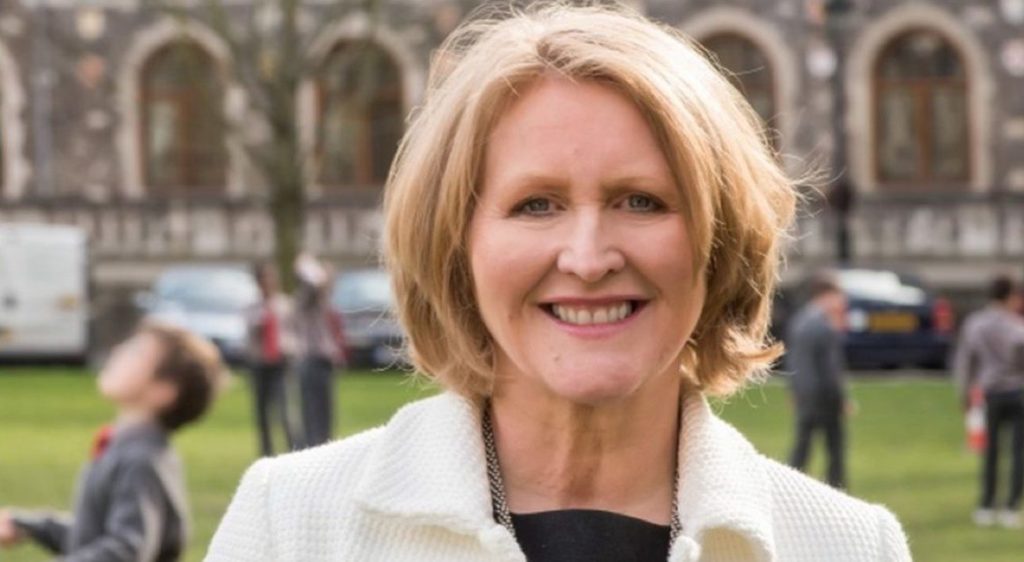A year-long commission to develop a new system to stop the ‘conveyor belt’ of vulnerable young people becoming involved in gangs and the criminal justice system has been established by the former children’s commissioner for England Anne Longfield.

The Commission on Young Lives will devise a new and achievable national system of support, focused on preventing crisis and improving opportunities for vulnerable children who are at risk of becoming involved in the youth justice system through gang involvement, knife crime or county lines.
The commission will look at how better to strengthen families, support children to stay in education, improve mental health support for young people, protect children at risk and prevent children in care from becoming involved in violence, criminalisation and the wider criminal justice system.
Launching the commission, Chair Anne Longfield said: “Covid has dealt a strong hand to the gangs and criminals who exploit vulnerable children. It has compounded the cocktail of risks like domestic violence, parental mental health problems, addiction issues, and not attending school that can see children falling off the radar and into danger.”
“At the same time, the methods used to entice and trap teenagers into criminality are brutal and increasingly sophisticated.”
“We are making it too easy for them to use our children,” she added.
Even before Covid emerged in the UK in March 2020, almost 15,000 children had been referred to social services where gangs were a factor in their assessment in the previous year, a rise of 4,000 in 12 months.
The Covid-19 pandemic provided new opportunities for the criminal exploitation of children who are vulnerable as a result of greater exposure to domestic violence, parental mental health problems and addiction issues during lockdown.
Professionals working with vulnerable children are seeing the level of severity of problems become even higher - more domestic abuse, greater food poverty, a resurgence in knife crime and in teenagers turning up at A&E with stab wounds, more children struggling with mental health problems, with some unwilling to get back in to school. Safeguarding incidents have become more extreme. Youth workers who before the pandemic were dealing with weekly new cases involving teenagers and serious violence, or in danger of exploitation, now talk about daily increases in demand.
A poll carried out by Public First of parents in England with children aged 5 to 18, revealed:
- 60% of parents were concerned that their child could become a victim of knife crime or serious violence, while 59% were concerned that someone might attempt to sell drugs to their child.
- 78% of parents agreed or strongly agreed that children are at higher risk of being involved in violence or crime than when they were a child, and 61% of respondents felt youth violence had increased in the last 10 years.
- When asked which issues they were most concerned about, 29% chose youth violence or gangs negatively impacting their child, behind only the internet and social media (38%) and poor mental health (36%). This finding was replicated across different geographies, voting intentions, social classes, and age groups of children - showing how youth violence and gangs is a key issue for voters.
- Just over half of parents think government is 'not really' or 'not at all' prioritising preventing young people from getting involved in youth violence.
- 45% of respondents felt government should focus on addressing youth violence and crime, behind only mental health (49%) and ahead of issues such as poor educational attainment (26%).
- When it comes to preventing youth crime/violence, 47% of parents of 5 to 18-year-olds want stricter punishment for criminals and 46% want to see greater investment in youth infrastructure.
The Oasis Charitable Trust, who will soon begin running the first Ministry of Justice secure school - a ground-breaking therapeutic model for children in custody, is hosting and supporting the commission. The commission also includes a national panel of experts and leaders with personal and professional insight and understanding of the issues and impact on the lives of young people and communities.
Anne Longfield said: “Society is struggling to know what to do, and the response is often disjointed, underfunded and uncoordinated. Yet this is an issue that many parents are deeply worried about, and they fear is getting worse.
“The Commission on Young Lives will develop systems of protection and support to help keep vulnerable children safe and inspire them to succeed. We will show how we can achieve better outcomes for marginalised children by providing affordable solutions to government and others.
“We need to start fighting back with coordinated national action that stops the conveyor belt of vulnerable children who are being groomed, abused and denied their chance to do well in life,” she concluded.


